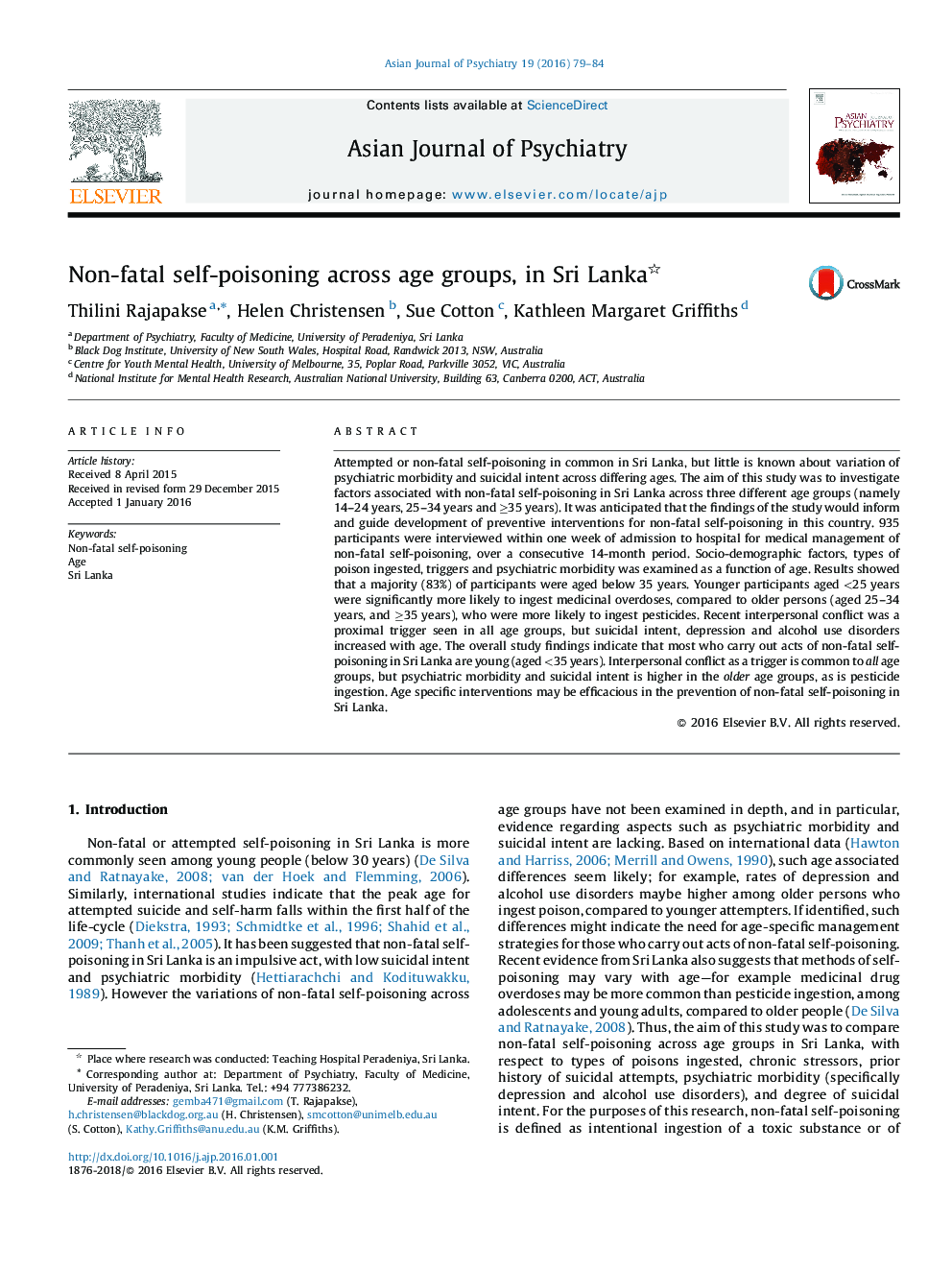| Article ID | Journal | Published Year | Pages | File Type |
|---|---|---|---|---|
| 316709 | Asian Journal of Psychiatry | 2016 | 6 Pages |
•Non-fatal self-poisoning in Sri Lanka is more common among young people.•Interpersonal conflict is a common associated proximal trigger irrespective of age.•Medicinal overdoses rather than pesticide ingestion is common among younger people.•Suicidal intent, rates of depression and alcohol use disorders increases with age.•Age specific interventions are indicated for prevention of non-fatal self-poisoning.
Attempted or non-fatal self-poisoning in common in Sri Lanka, but little is known about variation of psychiatric morbidity and suicidal intent across differing ages. The aim of this study was to investigate factors associated with non-fatal self-poisoning in Sri Lanka across three different age groups (namely 14–24 years, 25–34 years and ≥35 years). It was anticipated that the findings of the study would inform and guide development of preventive interventions for non-fatal self-poisoning in this country. 935 participants were interviewed within one week of admission to hospital for medical management of non-fatal self-poisoning, over a consecutive 14-month period. Socio-demographic factors, types of poison ingested, triggers and psychiatric morbidity was examined as a function of age. Results showed that a majority (83%) of participants were aged below 35 years. Younger participants aged <25 years were significantly more likely to ingest medicinal overdoses, compared to older persons (aged 25–34 years, and ≥35 years), who were more likely to ingest pesticides. Recent interpersonal conflict was a proximal trigger seen in all age groups, but suicidal intent, depression and alcohol use disorders increased with age. The overall study findings indicate that most who carry out acts of non-fatal self-poisoning in Sri Lanka are young (aged <35 years). Interpersonal conflict as a trigger is common to all age groups, but psychiatric morbidity and suicidal intent is higher in the older age groups, as is pesticide ingestion. Age specific interventions may be efficacious in the prevention of non-fatal self-poisoning in Sri Lanka.
